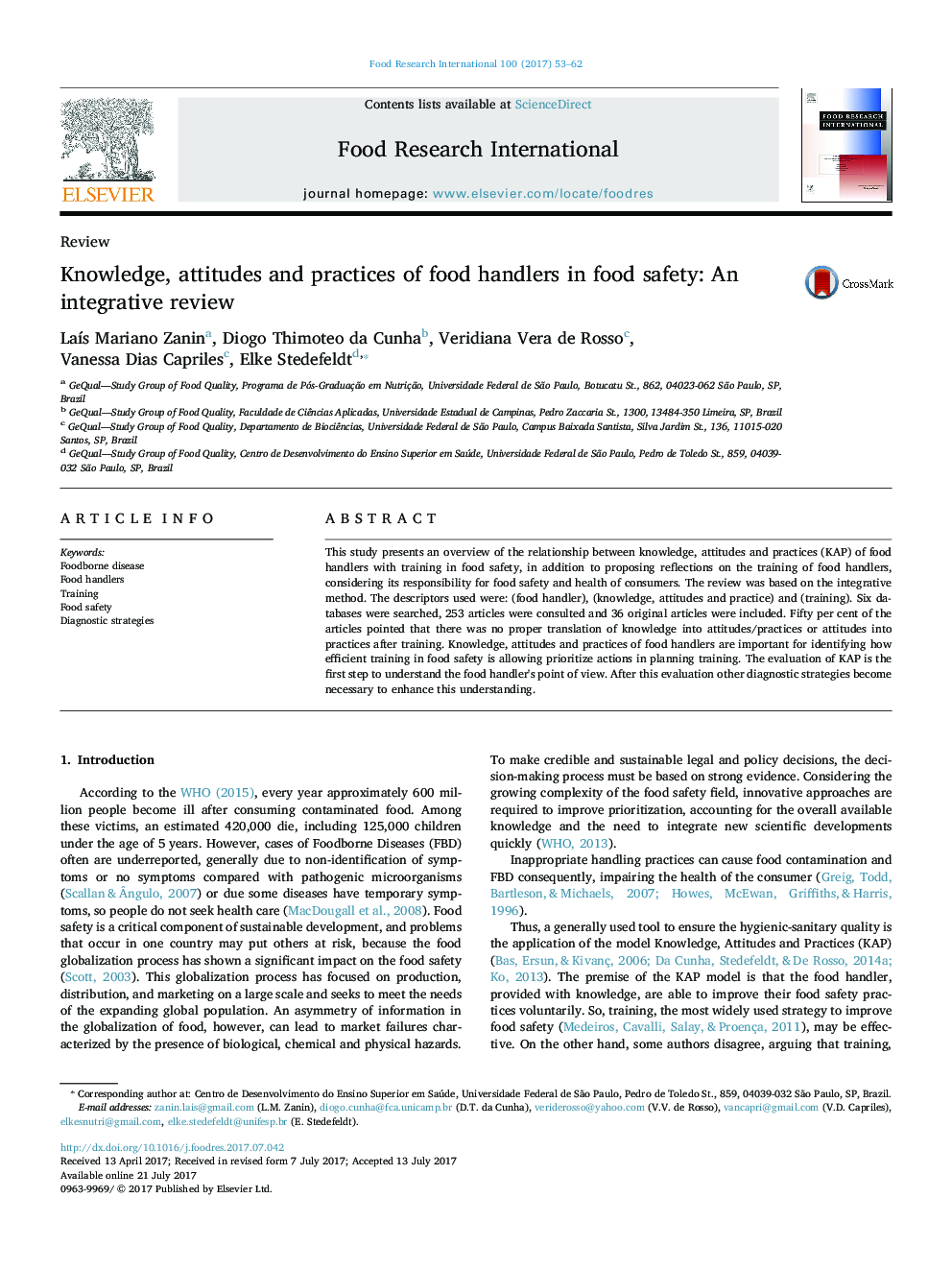| Article ID | Journal | Published Year | Pages | File Type |
|---|---|---|---|---|
| 5767952 | Food Research International | 2017 | 10 Pages |
â¢Majority of KAP surveys were conducted in developing countries.â¢There was no proper translation of knowledge/attitudes into attitudes/practice.â¢Evaluation of KAP is the first step to understand the food handlers' point of view.â¢Studies with evaluations of observed practice are still scarce.â¢KAP are important for identifying how efficient training in food safety is.
This study presents an overview of the relationship between knowledge, attitudes and practices (KAP) of food handlers with training in food safety, in addition to proposing reflections on the training of food handlers, considering its responsibility for food safety and health of consumers. The review was based on the integrative method. The descriptors used were: (food handler), (knowledge, attitudes and practice) and (training). Six databases were searched, 253 articles were consulted and 36 original articles were included. Fifty per cent of the articles pointed that there was no proper translation of knowledge into attitudes/practices or attitudes into practices after training. Knowledge, attitudes and practices of food handlers are important for identifying how efficient training in food safety is allowing prioritize actions in planning training. The evaluation of KAP is the first step to understand the food handler's point of view. After this evaluation other diagnostic strategies become necessary to enhance this understanding.
Graphical abstractDownload high-res image (126KB)Download full-size image
